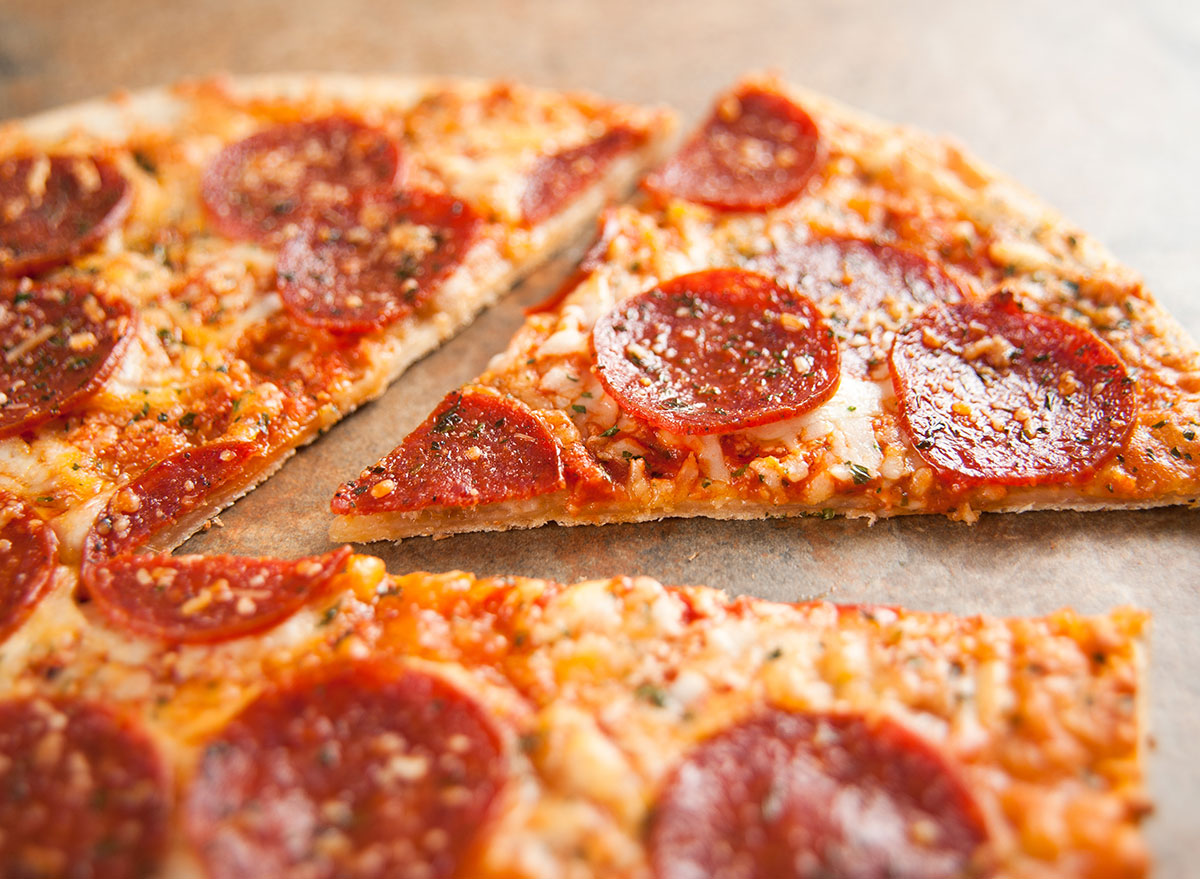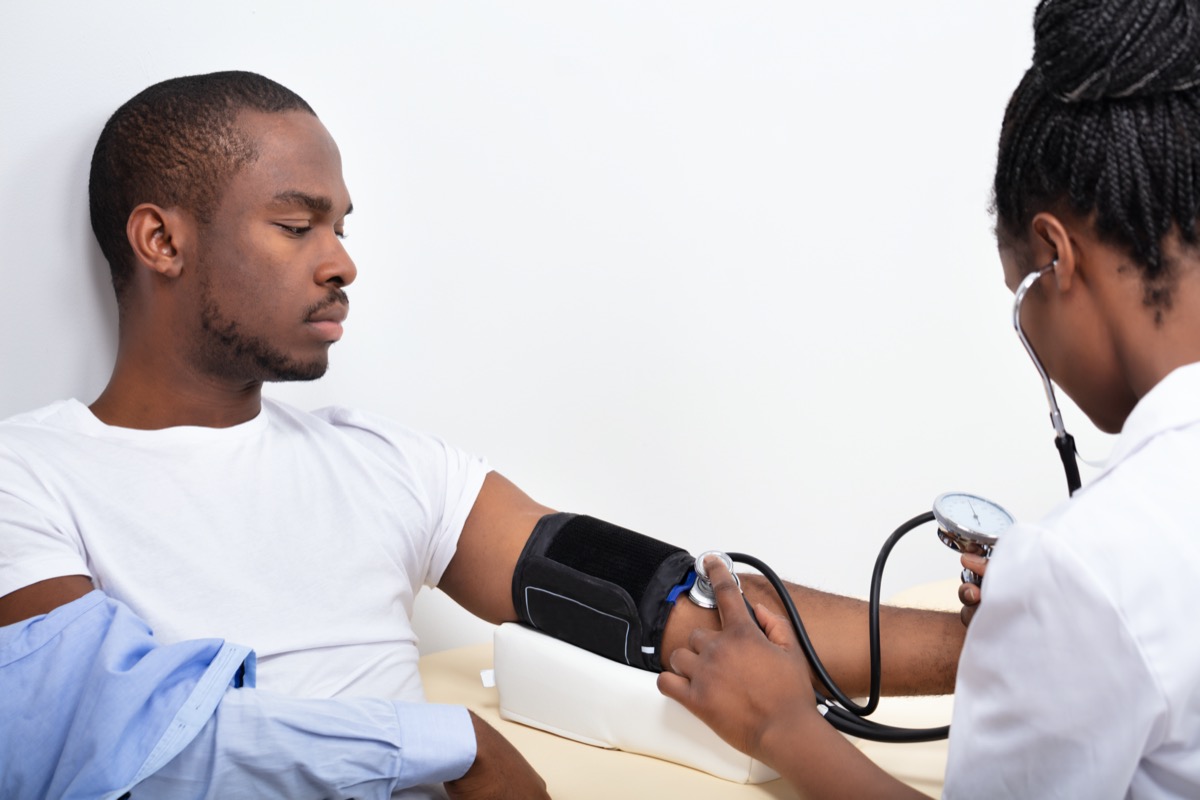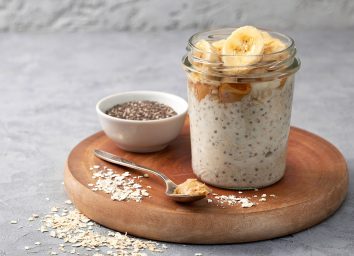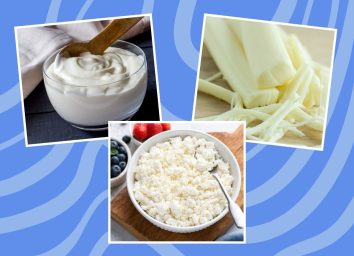What Happens to Your Body When You Eat Frozen Pizza

It's safe to say that for most people, one of the most beloved comfort foods is pizza. A bite of one slice and you're treated to a mouthful of cheesy, gooey, deliciousness. While ordering in a pie from your local pizza shop or making your own from scratch are both popular options, there is another type of pizza that is ready to be eaten in minutes. Yes, we're talking about frozen pizza. They don't break the bank and are ready to be eaten not long after you pop them in the oven. Sounds ideal!
Well, if you happen to find yourself turning to frozen pizzas more often lately (we're not the only ones still stocked up on plenty of frozen foods, right?), you should be aware of exactly what happens to your body if you're indulging.
Here's what eating all that frozen pizza does to you, and for more of what you should be eating, check out The 7 Healthiest Foods to Eat Right Now.
You might gain weight.

Obviously, eating a frozen pizza one night doesn't mean you're going to wake up the next day with five more pounds added to your frame. But if you happen to eat them often, you're likely to see an uptick on the scale.
One study found that healthy bodies have no problem overindulging and overeating, especially when it comes to a tasty food like pizza, as participants kept eating pizza well after feeling full. Plus, frozen pizza is a prime example of an ultra-processed food. Another study found that the participants who ate an ultra-processed diet consumed an average of 508 additional calories per day and after two weeks, they weighed an average of 2 pounds more than the participants who ate unprocessed foods.
You could feel sluggish.

Suddenly feel lethargic after that pie? Well, as we've already noted, pizza is one food that people often overeat, as eating foods that are high in saturated fats can lead you to crave these foods, and ultimately, you end up eating more. One study found that participants who ate pizza until they were overly stuffed felt tired, sleepy, and lethargic afterward as a result.
You could have more headaches.

If there's one main component of popular frozen pizzas is that they are loaded up with sodium. Oftentimes, it's far too much sodium than you should be having in one meal! And if your diet is full of sodium-packed foods, you could find yourself suffering through more headaches.
A study in the journal BMJ found that of the 400 participants who took part, those who ate foods that were high in sodium had one-third more headaches than those who ate foods low in sodium.
Looking for more helpful tips? Sign up for our newsletter to get daily recipes and food news in your inbox!
You could be negatively affecting your mood.

The best part about a frozen pizza? You don't actually have to do any cooking. Just toss it in the oven or toaster and it will be ready to eat soon enough. This could be a problem.
See, one study actually discovered that people who cook for themselves tend to experience more intense positive emotions. Not only that, but they also experience less intense negative emotions and overall don't worry as much. So taking the easy route of heating up a frozen pizza could be impacting your mood if this is something you're doing often.
You can increase your risk of heart disease.

All those frozen pizzas could be causing damage to your ticker. There is tons of evidence out there that high sodium intake is associated with a higher risk of developing high blood pressure, and it's no secret that frozen foods tend to be higher in sodium. Then, you factor in the toppings, which often include meats like sausage and pepperoni, along with a ton of cheese. Suddenly, you're eating more saturated fat than is recommended, and this can negatively impact your heart health.








